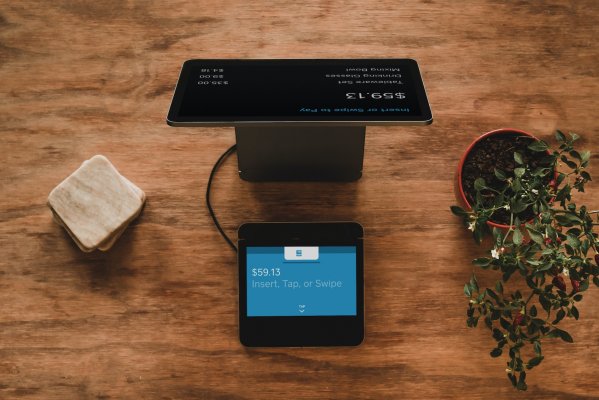In today's fast-paced business world, having a reliable Point of Sale (POS) system is essential for any small business owner. A POS system not only helps you keep track of your inventory but also enables you to process transactions quickly and efficiently, manage customer data, and generate valuable insights about your business operations. However, with many different types of POS systems in the market, selecting the right one for your small business can take time and effort.
This is a crucial first step in choosing the right POS system for your small business. To make an informed decision, you must first understand the specific needs of your business. The best POS systems for professionals, such as restaurants or retail stores, may require different features than those for service-based businesses. For example, a restaurant POS system may need menu and table mapping capabilities, while a retail POS system may require inventory and customer relationship management (CRM) features.
By identifying your business needs, you can focus your search on POS systems offering the features and functionality that best support your business operations. Additionally, understanding your needs can help you avoid paying for unnecessary features that may not be useful to your business.
The cost of a POS system can vary widely depending on the features and functionality you need. When considering your budget, it is essential to factor in not only the initial cost of the system but also any ongoing fees, such as transaction fees or monthly service charges. You may also need additional hardware or software to use the system effectively. As a small business owner, finding a system that offers the features you need at a price you can afford is crucial.
However, remember that the cheapest option may only sometimes be the best. A more expensive system may offer better features, better support, and a better return on investment. Consider the long-term benefits of investing in a high-quality POS system, such as increased efficiency, improved customer experience, and more accurate reporting. By weighing the costs and benefits of different POS systems, you can make an informed decision that aligns with your budget and business goals.
When choosing a POS system for your small business, it is essential to consider how easy it is to use. A user-friendly interface can save you and your employees time and frustration, increasing productivity and efficiency. Consider systems that offer training and support to ensure you and your staff can quickly learn how to use the system efficiently. Look for systems with clear and intuitive interfaces, so you can quickly navigate menus and perform everyday tasks.

Additionally, consider the hardware requirements of the system, such as the size and placement of the screen, as well as the accessibility of ports and other components. Choosing a POS system that is easy to use can help you avoid costly mistakes, reduce employee training time, and ultimately, improve the customer experience.
A secure POS system can help protect your business from fraudulent activity, data breaches, and other security threats. When evaluating security features, consider systems that offer secure payment processing, data encryption, and user authentication features. Look for systems that are Payment Card Industry (PCI) compliant, which means they meet industry standards for securing credit card transactions.
Additionally, consider systems that offer multi-factor authentication, which requires users to provide two or more forms of identification to access the system. Other security features include firewalls, antivirus software, and data backup and recovery tools. By choosing a POS system with robust security features, you can protect your business and customers' sensitive data from potential threats.
As your business grows, your POS system should be able to grow with you. Choosing a system that can accommodate additional users, locations, and features is essential. When evaluating POS systems, consider the number of users accessing the system simultaneously and the number of daily transactions the system can handle. Additionally, consider the system's ability to integrate with other software, such as accounting for inventory management tools.
This can help streamline your business operations and reduce the risk of errors or data duplication. Look for systems that offer customizable features, such as adding or removing product categories or modifying user roles and permissions. By choosing a scalable POS system, you can ensure that your business operations remain efficient and effective even as your business grows and evolves.
Start by listing the features you need for your business operations, such as inventory management, customer relationship management (CRM), and reporting. Then, compare the features of different POS systems to see which offers the most comprehensive set of features that meet your needs. Look for systems that offer customization options so that you can tailor the system to your specific business requirements.
Additionally, consider the system's compatibility with other software and hardware you use, such as accounting or payment processing tools. When comparing features, balancing functionality with ease of use is essential. A system that offers a broad range of features may be overwhelming and difficult to navigate for some users.
Choosing a POS system with reliable and responsive customer support can significantly impact your business operations. Look for systems that offer multiple support channels, such as phone, email, and live chat, to get help quickly and efficiently. Additionally, consider the availability of customer support, such as 24/7 support or support during your business hours. When evaluating customer support, consider the responsiveness and knowledge of the support team.
Read reviews and testimonials from other users to understand their experiences with the system's support team. It is also helpful to look for systems that offer training resources, such as online tutorials or user guides, so you and your staff can quickly learn how to use the system effectively. By choosing a POS system with reliable and responsive customer support, you can ensure that you always have the help you need to keep your business running smoothly.
Choosing the right POS system for your small business is crucial to streamline operations and improve customer experience. By following the tips we have discussed, you can make an informed decision that meets your requirements. It is crucial to remember that the POS system you choose will impact your business operations, so take the time to research and evaluate different options before making a final decision.





